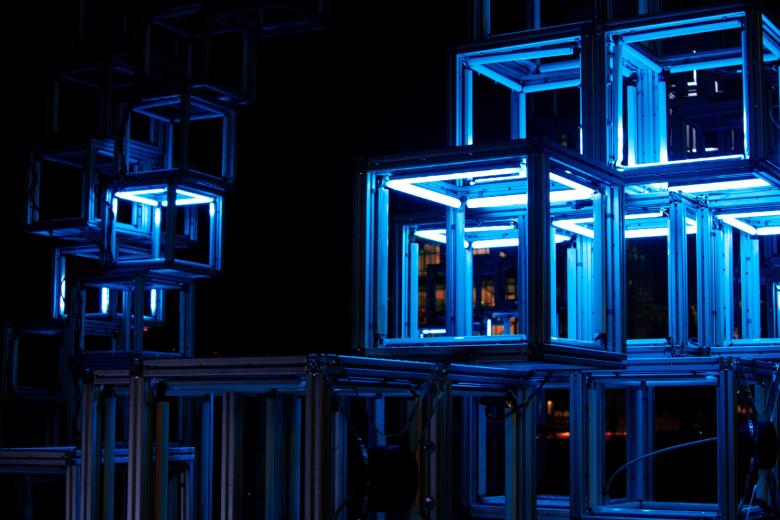Current PhD projects
At the moment, FASoS hosts around 70 PhD candidates. Some of these are part of a larger funded project while others carry out their own projects. Below you can find an overview of the large funded PhD projects - and the accompanying candidates within these projects - and individual PhD candidates.
Generative Enhanced Next-Generation Intelligent Understanding Systems (GENIUS) lab
The lab will co-develop generative, human-AI collaborative knowledge engineering methods and techniques for distinct yet highly interweaved knowledge engineering steps: collaborative knowledge synthesis; integration and linking of distributed knowledge fragments; integration of structured knowledge in generative AI models; trustworthy conversational AI using FAIR data and services; and hybrid human-AI ethics. These methods and techniques are designed, developed, experimented with, evaluated and validated in a variety of contexts.
The project is a collaboration between Delft University of Technology, Maastricht University, dsm–firmenich, and Kickstart AI.
| PhD candidate | Project | Supervisor |
|---|---|---|
| Mykhaylo Bogachov | Performativity in generative AI: a normative perspective | Dr. Darian Meacham |
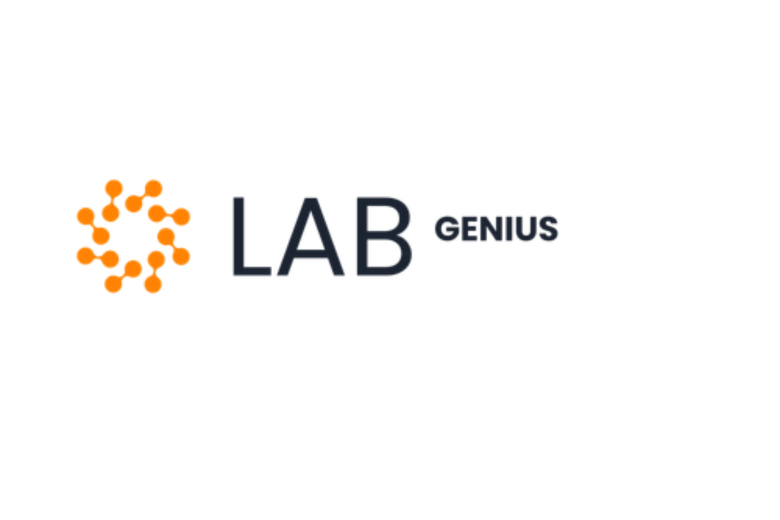
EMBRACing changE - Overcoming Blockages and Advancing Democracy in the European Neighbourhood
The research project EMBRACing changE (Overcoming Blockages and Advancing Democracy in the European Neighbourhood) aims to respond to the counter-democracy trends after the coloured revolutions and the Arab Spring. It does so through an inter-disciplinary, multi-method and cross-regional assessment of both blockages to and drivers of democratisation in 12 case study countries across Eastern Europe, Southern Caucasus, Western Balkans, Northern Africa and the Middle East.
The project is led by Dr. Giselle Bosse.
This project has received funding from Horizon Europe.
| PhD Candidate | Project | Supervisor |
|---|---|---|
| Wicke van den Broek | Democracy promotion during democratic crisis: Poland’s and Hungary’s policy towards Belarus and Ukraine in the framework of EU democracy promotion | Dr. Giselle Bosse |
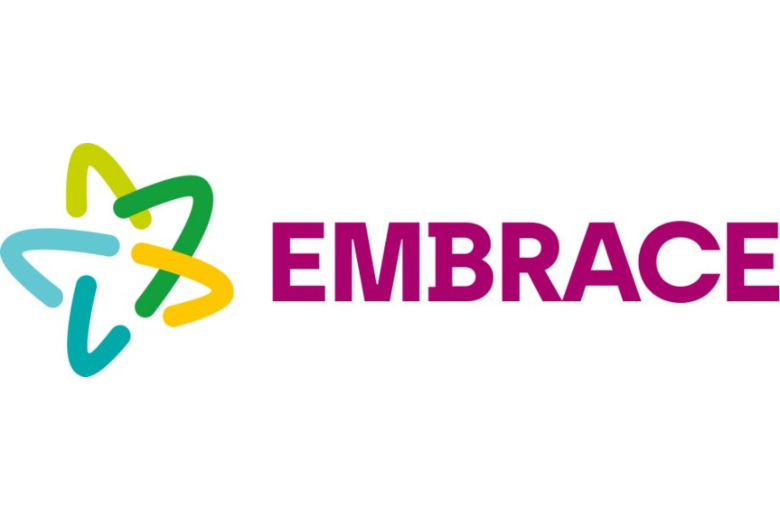
Trustworthy AI for Media Lab (TAIM)
The TAIM lab brings together two of the strongest groups on personalisation and recommender systems in the Netherlands, the University of Amsterdam and the University of Maastricht, and a leading media organisation, RTL, to develop trustworthy and personalised media.
| PhD candidate | Project | Supervisor |
|---|---|---|
| Daniella Pauly Jensen | Researching diversity and bias in artificial intelligence | Prof. Sally Wyatt |

ISPA: Integral Safe and Sustainable-by-Design Plasma Process for Acrylonitrile Production
The societal urge to turn to sustainable and circular modes of production and consumption brings huge challenges for the Dutch chemical industry. Currently, safety considerations as well as economies of scale dictate a landscape of large installations clustering at industrial sites. Products include fertilizers, plastics, and vaccine carrier proteins and are mostly fossil derived. A roadmap to guide the industry to sustainable and circular whilst also preserving economic viability and at least the existing level of safety does not yet exist as suitable technology is lacking. A potential solution for the common building block acrylonitrile is investigated in this work.
| PhD candidate | Project | Supervisor |
|---|---|---|
| Talitha Wilmsen | The feasibility of plasma chemistry as a more sustainable alternative to fossil fuels in the chemical industry | Prof. Esther Versluis |

NanoBubbles: how, when and why does science fail to correct itself?
Prof. Cyrus Mody received a Synergy Grant in 2020 for his project NanoBubbleS: how, when and why does science fail to correct itself?. The project investigates how, when and why science fails to correct itself.
| PhD candidate | Project | Supervisory |
|---|---|---|
| Candida Sánchez Burmester | Tracing claims in nanobiology: scientific practices and interactions at conferences and laboratories | Prof. Cyrus Mody |

A coalition of hawks and doves? Explaining military receptiveness to civil society calls for transparency around the use of force
The Hawks and Doves project examines military receptiveness to NGO calls for transparency in Western European countries. It aims to understand the conditions under which military officials are willing to cooperate with civil society to improve transparency around the use of military force and its consequences.
The project is lead by Dr. Yf Reykers and Dr. Francesca Colli.
The project is funded by the Gerda Henkel Foundation’s special programme on Security, Society and the State.
| PhD candidate | Project | Supervisor |
|---|---|---|
| Daphné Charotte | A coalition of hawks and doves? Explaining military receptiveness to civil society calls for transparency around the use of force | Dr. Giselle Bosse |

Care matters: making and valuing home in a mobile world
Dr. Lauren Wagner received a NWO Aspasia Grant for the project Care matters: making and valuing home in a mobile world. Care matters explores how the labour of caring for a home is changing along with increasingly mobile and partial practices of dwelling.
| PhD candidate | Project | Supervisor |
|---|---|---|
| Joma Ronden | Care matters but who cares: The case of remittance houses in Ghana | Dr. Lauren Wagner |
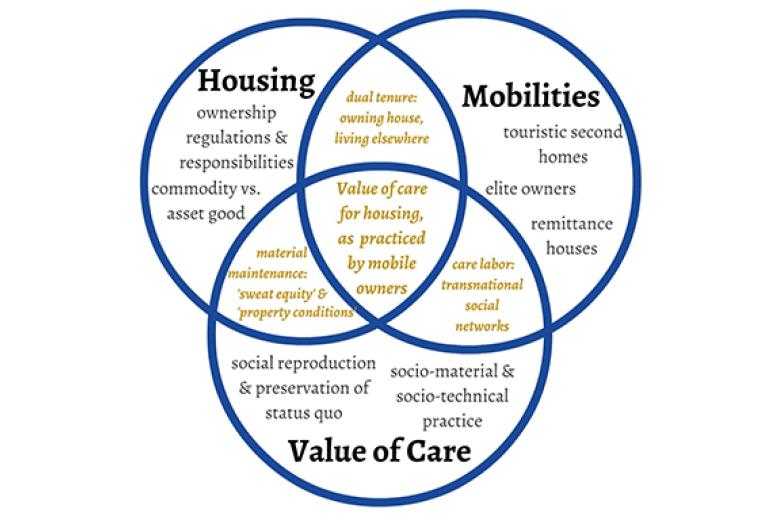
Managing Scarcity and Sustainability: The Oil Industry, Environmentalism, and Alternative Energy in the Age of Scarcity
Managing Scarcity and Sustainability: The Oil Industry, Environmentalism, and Alternative Energy in the Age of Scarcity is a five year research project led by Prof. Cyrus Mody.
This Vici project, funded by NWO, uses the case of oil in the 1970s to understand why companies adopt or reject alternative energy and conservation, and uses that understanding to facilitate an energy transition.
| PhD candidate | Project | Supervisor |
|---|---|---|
| Michiel Bron | The involvement of oil companies in the development of nuclear energy in the age of scarcity, focussing on the 1970s | Prof. Cyrus Mody |
| Jelena Stankovic | Understanding the complex relationship of oil firms and solar; internal and external drivers | Prof. Cyrus Mody |
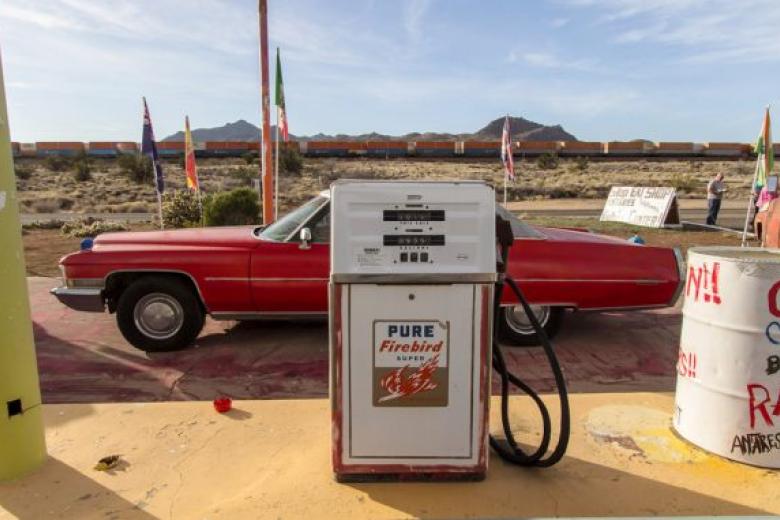
Moving animals: A History of Science, Media and Policy in the Twentieth Century
Moving animals: A History of Science, Media and Policy in the Twentieth Century is a five-year research project led by Prof. Raf de Bont.
The project – sponsored by an NWO Vici grant – studies changing human-nature relations by focusing on human involvement with ‘wild’ animals that move (or are being moved) over great distances.
| PhD candidate | Project | Supervisor |
|---|---|---|
| Vincent Bijman | Invasive species. The science, management and representation of animal introductions in the context of the 20th century | Prof. Raf de Bont |
| Monica Vasile | Reintroducing endangered species: human-animal histories in the 20th century | Prof. Raf de Bont |
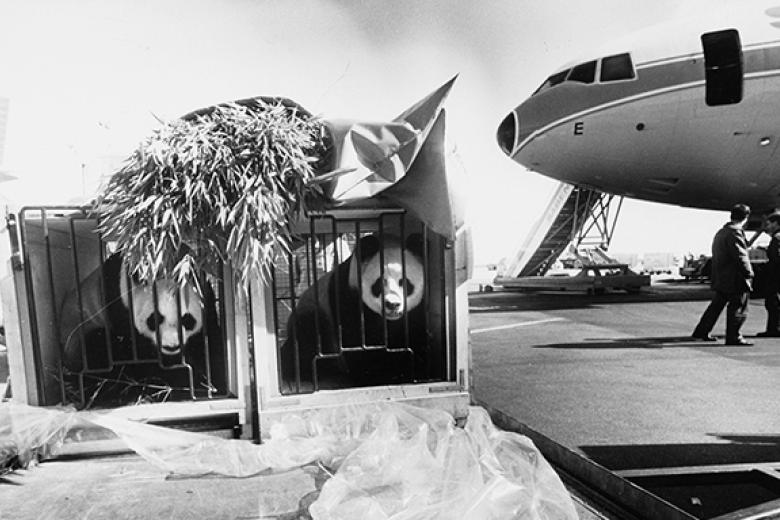
PURE3D
PURE3D is a three-year project funded by the PDI-SSH (Platform Digitale Infrastructuur–Social Sciences and Humanities) with a mission to advance the virtual research environment through the development of an access infrastructure for viewing interactive Digital Heritage and Digital Humanities 3D content online. It is led by Prof. Susan Schreibman and Dr. Costas Papadopoulos.
| PhD candidate | Project | Supervisor |
|---|---|---|
| Kelly Gillikin-Schoueri | 3D Web Infrastructures and the Future of Sustainable 3D Scholarly Research | Prof. Susan Schreibman |
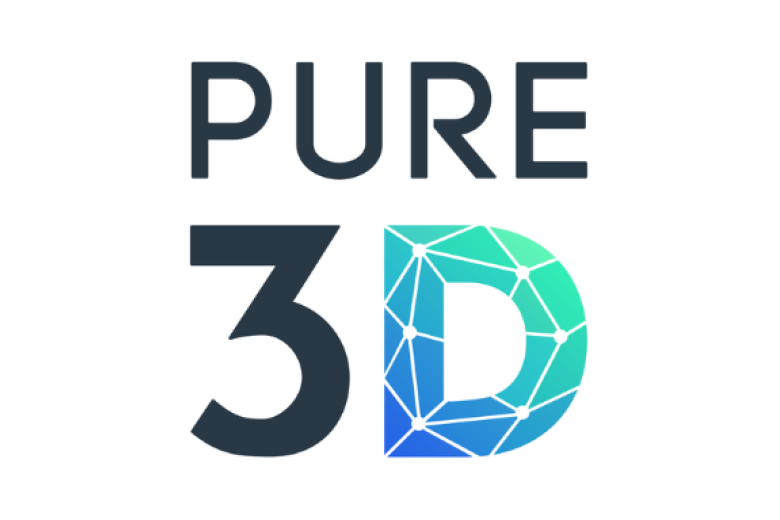
Deliberation Laboratory (DeLab)
Deliberation Laboratory (DeLab) is a four-year research project led by Prof. John Parkinson and colleagues at the University of Göttingen.
With Deliberation Laboratory (DeLab), we develop a transformative online testing environment that allows us to explain the nature, causes, and consequences of citizens’ perceptions in deliberative public, online dialogue across languages.
| PhD candidate | Project | Supervisor |
|---|---|---|
| Maud Oostindie | Escalation and de-escalation in online deliberation | Prof. John Parkinson |
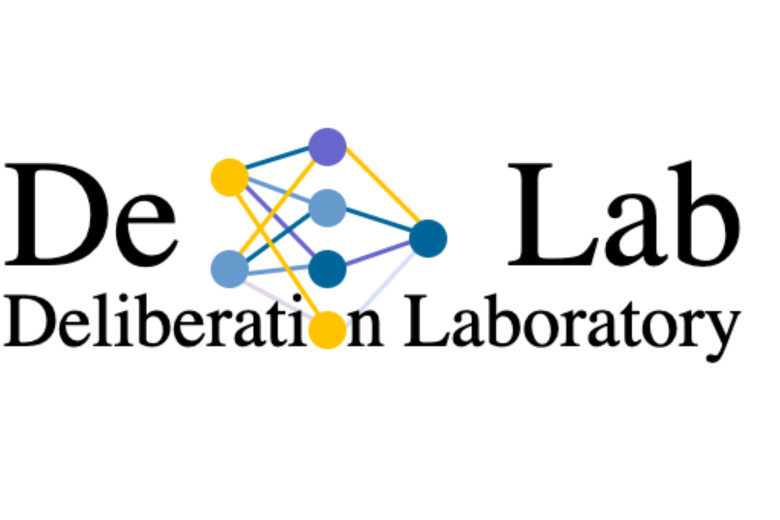
The Critical Visitor: Intersectional Approaches for Rethinking & Retooling Accessibility and Inclusivity in Heritage Spaces
The Critical Visitor: Intersectional Approaches for Rethinking & Retooling Accessibility and Inclusivity in Heritage Spaces is a five-year project led by Dr. Eliza Steinbock.
The aim of the project is to enable cultural institutions to implement daily working practices (selection, collection, preservation, display, interaction) that alleviate structures of exclusion.
| PhD candidate | Project | Supervisor |
|---|---|---|
| Liang-Kai Yu | Queering the Museum: Contemporary Artists and Curators as Critical Visitors and Their Creative Interventions | Dr. Eliza Steinbock |
| Noah Littel | Founding an Inclusive Space: Legacies of Alternative Archiving Practices in the Netherlands, Germany and the United Kingdom | Dr. Eliza Steinbock |
Image created by Noah Littel
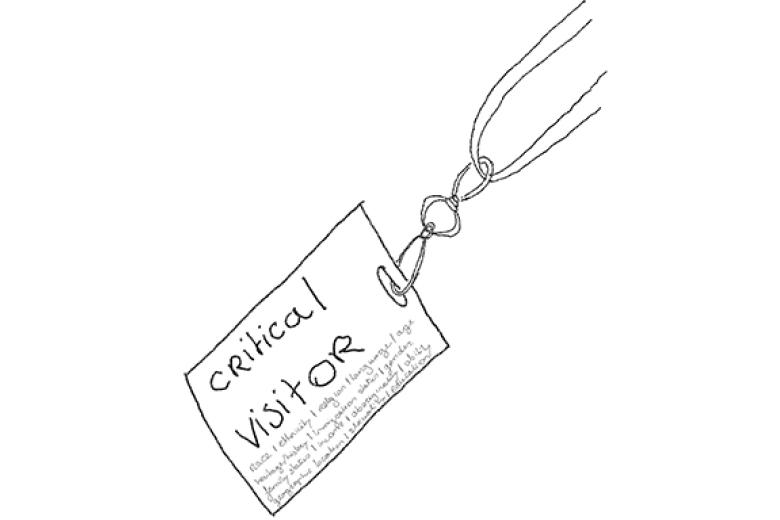
LIMES: The Hardening and Softening of Borders
LIMES, the Latin word for border, is a doctoral programme for 13 talented PhD candidates in the domain of the humanities and social sciences, centred on the theme of ‘The Hardening and Softening of Borders: Europe in a Globalising World’. It has received funding from the European Union’s Horizon 2020 research and innovation programme under the Marie Skłodowska-Curie (grant agreement No 847596).
LIMES is led by the Faculty of Arts and Social Sciences (FASoS), thereby working closely with University College Maastricht (UCM), the School of Business and Economics (SBE), and the Faculty of Law (FL). 6 out of 13 PhD candidates are employed by FASoS.
| PhD candidate | Project | Supervisor |
|---|---|---|
| Sara Atwater | From Boarders to Borders: Constructing Women's Roles in Post-Industrial Mining Communities in the German Ruhr Area and the Former Mining Regions of Dutch Limburg | Prof. Leonie Cornips |
| Maha Naami | Youth Mobilities of Unaccompanied Minors in Border Regions | Prof. Valentina Mazzucato |
| Judith van Puyvelde | The ‘Atelier Glasschilderkunst F. Nicolas en Zonen’ in Roermond (NL) (1855-1968) and the Revival of Stained-Glass Production in Western Europe in the 19th and 20th Century | Dr. Nico Randeraad |
| Cecilia Schenetti | Soft EU borders in Africa. How migration campaigns and social media affect young Senegalese men’s migratrion aspirations and sense of social justice. | Prof. Valentina Mazzucato |
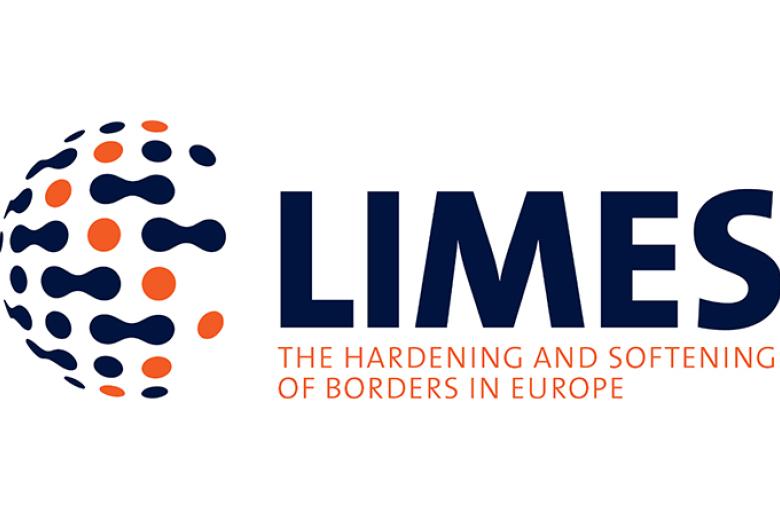
Making Clinical Sense
Making Clinical Sense describes, analyses, rethinks and redesigns the material conditions of learning sensory, bodily skills. By attending to the everyday material practices of training doctors (such as the use of physical models, blackboard drawing, making and watching video, searching online images and peer-to-peer learning) across place and over time, the research team offers unique insights into how the way people learn connects with what they learn. Making Clinical Sense has received funding from the European Research Council (ERC) under the European Union’s Horizon 2020 research and innovation programme (grant agreement No 678390).
| PhD candidate | Project | Supervisor |
|---|---|---|
| Andrea Wojcik | The co-production of bodies and pedagogical technologies in medical education. An ethnography of skills training at a Ghanaian medical school | Prof. Harro van Lente |
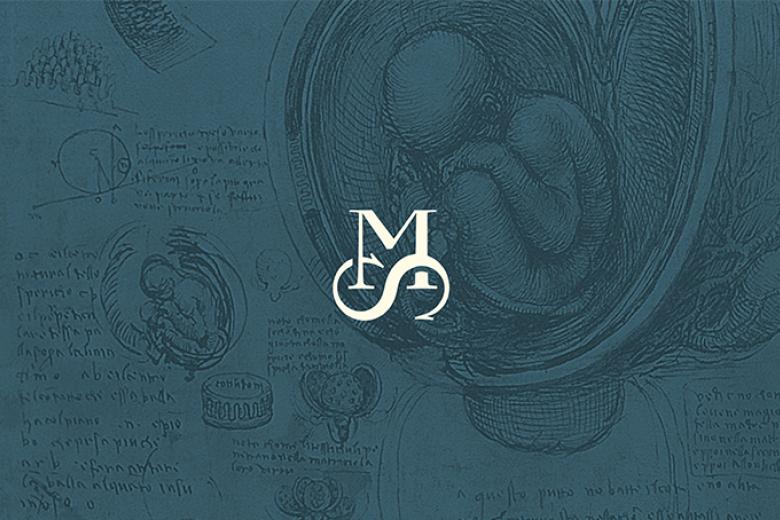
The Scientific Conference: A Social, Cultural, and Political History
The Scientific Conference: A Social, Cultural, and Political History is a three-year research project funded by HERA (Humanities in the European Research Area) led by Dr. Geert Somsen.
| PhD candidate | Project | Supervisor |
|---|---|---|
| Georgiana Kotsou | Convention Conventions. Routines and Rituals in International Scientific Conferences, past and present | Prof. Cyrus Mody |
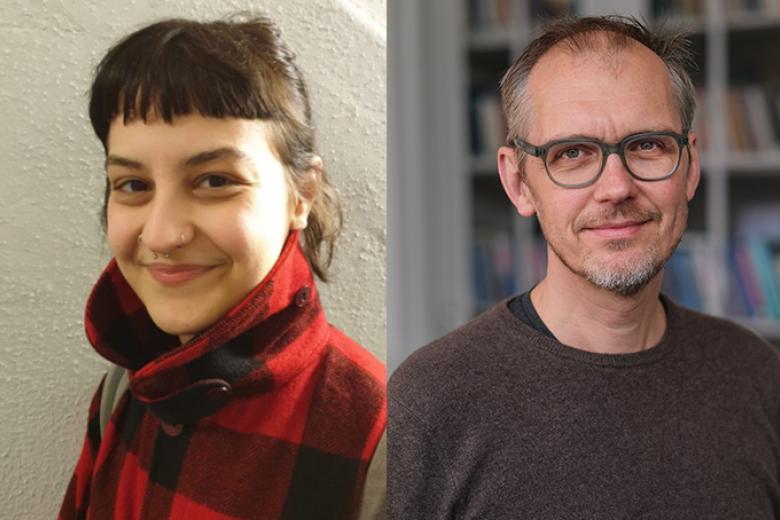
Individual research projects
Below you can find a list of PhD candidates that conduct their projects individually, outside a larger project.
PhD candidate
| Project | Supervisor |
|---|---|---|
| Vasiliki Belia | Redrawing feminism: graphic narrative engagements with the feminist past | Prof. Emilie Sitzia |
| Xing Fang | The United Nations Cybersecurity Governance. Towards Fair Global Rules? | Prof. Thomas Conzelmann |
| Angus Foster | The Europe problem – collective memory of Europe in Britain’s national referendums | Prof. Mathieu Segers |
| Antye Guenther | Unfolding 3D-Rendered Neuroimaginaries — A Trans*Feminist Artistic Investigation | Prof. Harro van Lente |
| Yan Jia | Beyond Clothing: Style, Identities and Practices | Prof. Leonie Cornips |
| Hanna de Korte | The Landscapes of Colonial Healthcare in Congo. An Environmental History of Medicine and Disease (1900-1960) | Prof. Raf de Bont |
| Pieter du Plessis | Belonging and Unbelonging in Amsterdam’s Het Zuid-Afrikahuis: A Decolonial Study of Dutch Whiteness in relation to Afrikaner whiteness | Dr. Eliza Steinbock |
| Jiaqi Liang | A Study of the Impact of Dark Heritage Sites on the Well-being of Local Communities: A Transnational Research with Dark Heritage Sites as Case Studies | Dr. Aline Sierp |
| Dirk van de Leemput | Precarity in the social-material networks of time-based media works of art | Prof. Harro van Lente |
| Joe Litobarski | The History of Public Cybernetics | Dr. Jacob Ward |
| Afra de Mars | A Mining Landscape without Borders. The Domaniale Mijn (Kerkrade) and its Surrounding Environment and Communities, ca. 1700 – present | Prof. Nico Randeraad |
| Niklas Mayer | Development Cooperation and Climate Change-Related Migration: The EU-Approach in the Horn of Africa | Dr. Giselle Bosse |
| Félix Streicher | The Forgotten Occupation: Politics, Everyday Life and Gender in the Luxembourgish Occupation Zone in Germany (1945-55) | Prof. Mathieu Segers |
| Karlien Strijbosch | Challenging masculinities: The institution of marriage for young Senegalese migrant men under conditions of involuntary return to Senegal | Prof. Valentina Mazzucato |
| Luca Vanello | Caring with matter: Towards new artistic forms of togetherness | Prof. Aagje Swinnen |
| Yiming Wang | Fandom and Participatory Censorship: Boys’ Love Fiction and Globalised Fan activities across The Great Firewall of China | Prof. Emilie Sitzia |
| Zhanwei Wang | Institutional Design of China-Led International Organizations | Prof. Hylke Dijkstra |
| Yabo Wu | The firm as a development actor: the case of Chinese businesses | Dr. Adam Dixon |
| Manling Yang | A comparative study of the EU’s and China’s development assistance to Africa, especially how their assistance policies differ associated with their domestic development | Prof. Thomas Christiansen |
Part-time PhD candidates in European Studies, campus Brussels
At our Brussels campus, you can pursue a PhD alongside your work. Below you can find a list of names of people who participate in this scheme, and their research projects.
| PhD candidate | Project | Supervisor |
|---|---|---|
| Aniek Berendsen-Marissink | Reweighing the Re-balance. The Effect of External Political Discourse on European Defence Policy Development: the American Re-balance | Prof. Sophie Vanhoonacker |
| Samuele Crosetti | Bank resolution regimes and financial stability: recent evolution, public actors and future challenges | Prof. Esther Versluis |
| Pétur Gunnarsson | Alignment of European non-EU members to EU foreign, security and defence policy | Prof. Sophie Vanhoonacker |
| Buddy Janssen | The EU Digital Policy and the turbulent Road to Digital Soveriegnty – An initial Evaluation | Dr. Paul Stephenson |
| Tomasz Jerzyniak | Energy Power Europe. Can the EU lead the global clean energy transition? | Dr. Anna Herranz Surrallés |
| Ann-Kristin Matthé | Internationalisation Strategies in higher education – perceptions and practices. Examining how higher education institutions conceptualise internationalisation and which factors influence the implementation of internationalisation strategies in Germany and the Netherlands | Dr. Patrick Bijsmans |
| Giorgio Micheletti | The EU Digital Policy and the turbulent Road to Digital Soveriegnty – An initial Evaluation | Prof. Sally Wyatt |
| Susanne Reither | EU mission-oriented policies for the transition to sustainable development and the nexus between public investment and private sustainable finance | Dr. Aneta Spendzharova |
| Bachir Saleh Azzam | The Dynamics of Politicization of International Organizations: Why, When, and How States “Abuse” International Organization | Prof. Hylke Dijkstra |
| Igor Sarkissian | The Impact of a priority shift on the governance a policy system: the case of the European trade policy | Prof. Sophie Vanhoonacker |
| Antonio Spissu | Global Stablecoins: the politics of domestic rule-making and international coordination | Dr. Aneta Spendzharova |
| Robert Tyler | Variation in the use of Historically Contextualised Framing of Foreign Policy Towards Russia between Central and Eastern European Countries in the Context of the Russo-Ukrainian War 2014-Present (The Case of Poland, Hungary, & Slovakia) | Dr. Gergana Noutcheva |
| Teresa Vázquez López | Winning from crises? An examination of the rise of the European Commission as a political entrepreneur and its dialogue with the pharmaceutical industry during the last two health crises | Prof. Esther Versluis |
-
PRICELESS
-
Generative Enhanced Next-Generation Intelligent Understanding Systems (GENIUS) lab
-
EMBRACing changE - Overcoming Blockages and Advancing Democracy in the European Neighbourhood
-
Trustworthy AI for Media Lab (TAIM)
-
ISPA: Integral Safe and Sustainable-by-Design Plasma Process for Acrylonitrile Production
-
NanoBubbles: how, when and why does science fail to correct itself?
-
A coalition of hawks and doves? Explaining military receptiveness to civil society calls for transparency around the use of force
-
Care matters: making and valuing home in a mobile world
-
Managing Scarcity and Sustainability: The Oil Industry, Environmentalism, and Alternative Energy in the Age of Scarcity
-
Moving animals: A History of Science, Media and Policy in the Twentieth Century
-
PURE3D
-
Deliberation Laboratory (DeLab)
-
The Critical Visitor: Intersectional Approaches for Rethinking & Retooling Accessibility and Inclusivity in Heritage Spaces
-
LIMES: The Hardening and Softening of Borders
-
Making Clinical Sense
-
The Scientific Conference: A Social, Cultural, and Political History
-
Individual research projects
-
Part-time PhD candidates in European Studies, campus Brussels
